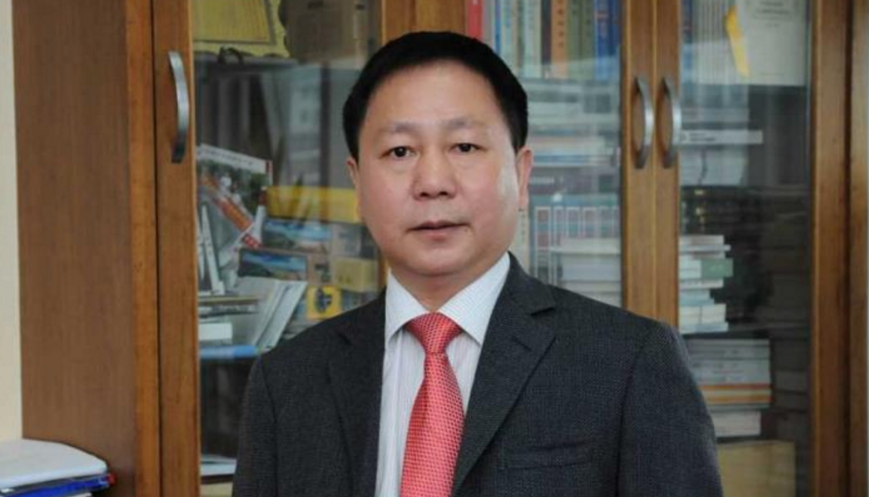
The centenary of the birth of the Communist Party of China, which saved the country, revived it, enriched it and strengthened it, has brought about sweeping changes to the Chinese landscape. The Chinese nation has made a great leap from standing up, getting rich to getting strong. Looking back on a century of Party history, peoplehood has always been the most distinctive foundation of the Chinese Communist Party. A profound response to peoplehood is reflected in the Party's judgement of the main social contradictions, from common prosperity to overall wellbeing, from poverty eradication to rural revitalisation, the CPC has always taken the people as the basis of its rule. Only by keeping a close eye on peoplehood can we understand the fundamental logic of the CPC's governance. To discuss the reform of the fiscal system under the leadership of the Party, we need to closely follow the fiscal practices under the leadership of the Party and grasp the people's nature in the dynamics and trends of fiscal reform.
- History of financial practice under the Party's leadership
Throughout the century-long history of fiscal reform under the leadership of the CPC, finance has taken on different tasks and missions at different times, but adhering to the people as the centre has always been the keynote of fiscal work under the leadership of the Party. The financial practices led by the Party have broadly gone through the following processes: (1) Finances of the revolution. During the New Democratic Revolution, Mao Zedong had already become acutely aware that finance was a key factor in the conduct of the revolutionary struggle and that it served the Party in the revolutionary war and the supply of the army. (2) Financial security. After the founding of the PRC, the Party and State leaders made the decision to unify the national financial revenue and expenditure, material dispatching and cash management, and set up supporting systems such as the unified purchase and marketing system and the people's commune system. (3) Financial construction. Since the reform and opening up, the Party has aimed to revitalise the economy and the fiscal system has served to build the national economy. The first is to devolve power to enterprises and make them profitable, the second is to enhance the autonomy of local development through fiscal reform, and the third is to establish a public finance framework and institutional system. (4) Fiscal governance. With China's economy moving from high speed and rough growth to a new normal stage of high-quality growth, finance has become the foundation and important pillar of national governance, with fiscal reform featuring coordination, specialisation and efficiency.
- Basic trends in fiscal reform under the leadership of the Party
Looking back on a century of fiscal practice, the CPC has always promoted fiscal reform in response to the development needs of the people. In the context of China's global integration, an open and large fiscal system has been established; as the economy enters a stage of high-quality development, a modern fiscal system has been improved; and as society moves towards harmonious development, an inclusive fiscal system is gradually formed. China's fiscal reform under the leadership of the Party includes the following trends: (1) From closed to open: After the founding of the PRC, a more conservative state-distribution type of finance has developed; as China's economic ties with the world increase, China's modern fiscal system is being oriented towards the world. (2) From tradition to modernity: The Third Plenary Session of the 18th Party Central Committee proposed the establishment of a public finance system, with modernity implied by the regularisation of fiscal revenue and the absolute proportion of tax revenue; the standardisation of fiscal expenditure on people' s livelihood to safeguard people's welfare; and the performance of fiscal management to strengthen budgetary constraints. (3) From imbalance to inclusiveness: fiscal progression from imbalance to inclusiveness: central-local administrative relations switching from imbalance to stability; regional development gradually shifts from differentiation to balance; group distribution moves from imbalance to equity.
- Directions and reflections on the reform of the fiscal system under the leadership of the Party
The success or failure of the reform has determined the rise and fall of the nation. Looking back on a century of trials and tribulations, no matter what the period, adhering to the Party's leadership of finance is the fundamental way to safeguard the well-being of the people. The pace of fiscal reform will never stop, and future fiscal reform should balance three sets of relationships. (1) The relationship between equity and efficiency. We should continue to promote the reform of the income distribution system, especially in the context of the development of the digital economy, digital technology and artificial intelligence, to prevent the income distribution gap from widening. (2) The relationship between dynamism and order. The division of powers and expenditure responsibilities between the central and local governments should continue to be improved, the financial autonomy of local governments should be moderately enhanced, and the power of local tax administration should be expanded to form a self-reinforcing central-local financial relationship. 3) Domestic and international relations. The wave of globalisation has become irreversible, participation in global economic governance is an inevitable choice for China's future. Our fiscal reform should do a good job of dovetailing domestic development with international strategies.
